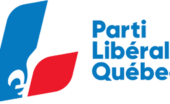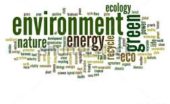Molly Minturn - My family is heartbroken to share that my father died in surgery on Monday, Feb. 10. It…
Wednesday Night #2059
Written by Diana Thebaud Nicholson // September 1, 2021 // Wednesday Nights // Comments Off on Wednesday Night #2059
We are sad to convey the news that Wednesday Nighter David Waters died peacefully last Friday at the St Raphael hospice in Outremont. Our deepest sympathy goes out to his widow, Katherine. Former journalist, author of several books, he was a remarkable soul with great philosophical and spiritual depths which I and others sometimes found challenging, but always enjoyed. Have not yet seen an obituary, so have no further details.
Thanks to Chris Neal for Smarty Party
The old tradition of the ‘salon’ — where guests become members of a small, privileged audience — gains momentum.
Across the country individuals and companies are staging their own salons. They may resemble cocktail parties or seminars or networking events — and some are sponsored, as the SoHo salon was, by St. Germain liqueur. But they are distinguished from those other events in one important way: all participants are expected to partake in communal, meaty conversations while having fun at the same time.
Afghanistan
Editorial writers, reporters, analysts, talking heads and just about every member of the commentariat has and will have something to say about the dominant news of the past week U.S. completes withdrawal of forces from Afghanistan after 20-year war
For the moment, Caroline Mimbs Nyce, Senior associate editor of The Atlantic sums it up best: It’s too early to know what history will make of the president’s calls over the past few weeks; writers at this publication have doled out both criticism and praise. And we still don’t know what the retreat means for U.S. foreign policy going forward. For now, this long, fraught chapter is simply over.
Jeremy Kinsman and Larry Haas debate the Afghan collapse and US retreat – is US leadership now maimed?
As always, Heather Cox Richardson’s commentary August 31, 2021 is reasoned and worthwhile.
A good friend and expert on the Middle East sent the following comment:
Islamist terrorism is not repeat not a phenomenon just of the Arab world. The Afghan Taliban, the Pakistani Taliban, al-Qaida, ISIS-K and others already are actively working to establish/burnish their credentials to predominate the Islamic battle against the infidel West. All the various groups will seek to control/use some portion of Afghanistan as a safe haven and staging base for forays against the West, just as OBL did from Bora Bora and ultimately from Abbottabad. OBL’s strategy, and that of others who have sought/are seeking to wear his mantle is to demonstrate through long-term/repeated terrorism that the West at the end of the day will bow to righteous/victorious Islam. This may seem simplistic, but remember that Islamic terrorism arising out of Mecca/Medina in the 7th & 8th centuries used the sword to conquer most of the West; now the weapon is Kalashnikovs and IEDs. I don’t expect the Islamic terrorism to succeed primarily because the various groups will fight among themselves and never achieve the cohesion needed to win the day against the West. But they will resort to more vicious terrorism trying to do so. We’re in for hard times, I’m afraid.
On 1 September, Shifting to Governing, Taliban Will Name Supreme Afghan Leader
Taliban say Afghans will be able to travel freely in future – can we believe them and even if this is in good faith, will the Taliban be able to carry out the promise?
What you need to know about Canada’s Kabul airlift mission
Only the UK, Germany, Italy and Australia extracted more evacuees than we did, and only Australia and the UK airlifted more per capita of their population. …
Undoubtedly there is fair criticism of Immigration, Refugees and Citizenship Canada (IRCC) It’s inexcusable how cumbersome and unwieldy our processing management is at the best of times, let alone during a global crisis, when it most needs to be responsive and flexible. Government communications have been poor. Desperate people were left hanging and alone, apparently abandoned, as our last flight out of Kabul left. But the poor communications and bureaucratic red tape that plagued this effort also struck every other country conducting airlifts out of Kabul. Every one of them was forced to leave deserving people behind, and faces media stories at home condemning their apparent ineptitude.
At least one good story! A Chrystia Freeland factor?
Ukrainian troops rescue Canada-bound Afghans in daring operation
A plane carrying Afghan translators, including one who worked for The Globe and Mail and another who served the Canadian military, as well as their families, has arrived in Kyiv following a daring operation by Ukrainian soldiers stationed at Kabul airport.
The rescue, which was co-ordinated by the Ukrainian military, the office of President Volodymyr Zelensky and The Globe, may pave the way for other Afghans fleeing the Taliban to make their way to Canada.
Remarkable pictures!
Thousands flee Taliban-held Afghanistan walking miles through desert across Pakistan and into Iran
(Daily Mail UK) The almost-biblical scenes of the mass migration across the desert where the borders of, and all meet shows an endless river of people flowing between the mountains.
Delighted to share the news that Jaime Webbe (Revenaz) is the new UNA-Canada President & CEO, effective Monday, 30 August. We hope her new job will soon bring her to Montreal to visit the Montreal branch of UNA-Canada and Wednesday Night. She will of course continue her work leading Alinea International’s global climate change and biodiversity portfolio.
Welcome to Cold War II
Ari David Blaff
In early June, with little fanfare or press coverage, the US Senate passed a 2,400-page bill called “The United States Innovation and Competition Act (USICA).” Heralded as “the most significant government intervention in industrial policy in decades,” the bill will pump over $200 billion into a diverse spectrum of R&D initiatives over the next five years with the sole purpose of bolstering “competitiveness against China.”
“For decades, politicians and corporate officials ignored warnings about the risks associated with America’s over-dependence on foreign manufacturing, and a lack of adequate preparation at home,” Martha Mendoza and Juliet Linderman contend in an article for PBS Frontline . Unfortunately, it took the worst pandemic in a century and over half-a-million deaths for America to wake up. …
The same goes for semiconductors.
The election campaign
Liberal Party releases multi-billion dollar election platform for post-pandemic recovery
We have not had the time to read, let alone analyse the “sprawling, 53-page platform” that “proposes $78 billion in new spending” and so must rely on policy-wonk Wednesday Nighters to confirm that “It differs substantially from the Conservative plan released earlier in this campaign in that it proposes to invest more in Liberal priorities — such as efforts to fight climate change, Indigenous reconciliation and the arts and cultural sector — while promising tighter restrictions on firearms and new money for provinces that ban handguns.”
It has not been an easy campaign for Justin Trudeau. The violence of some demonstrations is deplorable and unacceptable. A Cambridge, Ontario campaign event was disrupted by protesters shouting obscenities, uttering death threats against the prime minister and hurling racist and misogynist insults at people of colour and women in his protective detail. Surly, unruly, crowds and demonstrations billed as anti-mask and anti-vax represent a more general dissatisfaction with his leadership, including the considerable bungling by the Department of Immigration during the Afghanistan crisis.
Is there also foreign interference as predicted by the Communications Security Establishment before the election was called?
Canadians likely to be targeted by foreign actors in next election, cyber agency says
And many voters may share Don Martin’s opinion that It’s all about him — and that’s why Trudeau is in trouble.
From the tranquility and beauty of his Kamaraska home, Andrew Caddell addresses the same issue in this week’s Hill Times (paywall) column
“The Liberals are losing. In this Seinfeldian election about nothing, the only constant is the electorate’s anger. Like the rubes in Times Square bilked in a game of three-card monte, Canadians are furious with Justin Trudeau for calling an election when it wasn’t required.
After an event in Bolton, Ontario was cancelled for fears of violence, the prime minister told the news media “We all had a difficult year. Those folks out protesting, they had a difficult year too, and I know and I hear the anger, the frustration, perhaps the fear.”
No. People are angry because they know the election was called because the Trudeau Liberals wanted a majority.”
Foreign media are paying more attention than usual as evidenced by this Wednesday headline from the BBC How much trouble is Trudeau in?
And Al Jazeera, no less!
Canada’s Conservatives make gains weeks ahead of vote, polls show
Surveys show Conservatives with a slim lead over Justin Trudeau’s Liberal Party as Canada readies for September 20 vote.
More on Politico Canada’s Ottawa Playbook
Lloyd Axworthy, Jean Charest, Jennifer Welsh, Jeremy Kinsman and Ben Rowswell:
Canada needs to reimagine a foreign policy for a leaderless world
[I]n a Canadian election campaign that was launched on the same day as the fall of Kabul, foreign policy does not seem to feature on the agenda of our political parties. The government has called the election to allow Canadians to pronounce on choices facing them on health, social policy and economic recovery. As geopolitical rivalries intensify, climate change accelerates and the international economy transforms in unpredictable ways, how will our country participate in efforts to create greater stability and more effective international solutions? So far the election campaign has offered no answers to voters.
(Globe & Mail) The disastrous retreat from Afghanistan is yet one more development that shows the U.S. has lost the primacy it once enjoyed in international affairs. Both Republican and Democratic presidents have demonstrated a faltering resolve for global leadership. America’s commitment to work with allies in upholding the international order is in question as never before.
Without effective U.S. leadership, the onus to address burning international issues falls more heavily on the rest of us in the democratic world. The rise of illiberal nationalism and authoritarian rule, the declining self-confidence of liberal democracy, the return of protectionism and trading blocs, runaway nuclear proliferation, global health and climate crises – these are issues that countries such as Canada must now confront if superpowers cannot or will not.
Good question!
Canadians demand to know why they can fly — but still not drive — to the U.S.
Almost a year and a half ago, Canada and the U.S. agreed to close their shared land border to non-essential travel.
For reasons that have never been fully explained, the U.S. continued to allow Canadian leisure travellers to fly to the country. Currently, air passengers only have to show proof of a negative antigen or molecular test; there’s no vaccination requirement.
Extreme weather and climate change
A more globally important issue is underlined by the impact of Hurricane Ida on Louisiana and Mississippi. We can all give thanks that the levees held, but nonetheless, damage was extensive.
Tropical Storm Larry is now forming in the Atlantic
The links between hurricanes and climate change are becoming more apparent. A warming planet can expect stronger hurricanes over time, and a higher incidence of the most powerful storms — though the overall number of storms could drop, because factors like stronger wind shear could keep weaker storms from forming.
Hurricanes are also becoming wetter because of more water vapor in the warmer atmosphere; scientists have suggested storms like Hurricane Harvey in 2017 produced far more rain than they would have without the human effects on climate. Also, rising sea levels are contributing to higher storm surge — the most destructive element of tropical cyclones
Bill 96: How Does Bill 96 Impact Community Organizations
QCGN Zoom event
Thursday, September 2, 12-1 p.m.
Registrations closed Wednesday, September 1 at 5 p.m.
Contact us at ev****@**gn.ca for any additional information.
Varia
Montreal vaccination centre brings in therapy dogs to help people overcome needle anxiety (video)
China bans exams for six-year-old school children
It’s the latest effort to try and relieve pressure on parents and students in a highly competitive education system.
Students used to be required to take exams from the first year of primary school, up until a university entrance exam at the age of 18.
Long reads
Hurricane Ida Proves That We Need to Step Up the Political Fight on Climate Change
Amid the torrent of news reports and Webcam photos of Hurricane Ida’s effects, it’s worth reminding ourselves that this calamity is the predictable result of simple physics.
By Bill McKibben
From Bloomberg CityLab:
Killer Heat Forces Cities to Adapt Now or Suffer
The question of which cities and regions will be able to adapt to new extreme heat is part of the hard math of climate change. Heat researchers see this process defined by two drivers: income and climate. It’s wealth that determines which cities have the resources to defend themselves, and future heat mortality that determines if those efforts succeed.
The Guardian’s weekly media series looks at “how our predecessors did our jobs. Back in the days when there was no internet, or even no phones, when news arrived by ship, or by train, or even not at all. We created a weekly series called Before My Time, in which current staffers interview or investigate their antecedents to find out how the job has changed over the years.”
Liberalism and Socialism Are Both in Crisis
…in recent days, as the Delta variant spread through bastions of anti-mask identity politics like an anthropocentric wildfire — and the IPCC released its latest politically impotent prophecy of the coming ecological eschaton — the mood in Twitter’s left corner grew especially dour. For U.S. progressives, maintaining faith in humanity’s capacity to avert catastrophic climate change was challenging enough before the pandemic. “Optimism of the will” has proven even harder to muster while watching ICUs overflow as vaccines expire.



